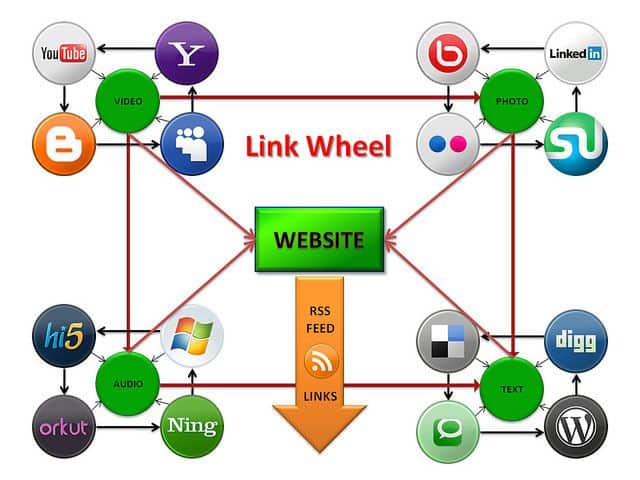With the introduction of search engines into our routine, most of us have at some point come to know search engine optimization (SEO). The good news is that search engine optimization can be done by anyone who is willing to put in the effort, just like starting your own website. You don’t have to know anything about web development or be an expert. Yes, you could get out and pay someone; but as with several things, no one will care more than you about the quality of the work. You will also save a lot of money. So what is Search Engine Optimization (SEO)?
What Is Search Engine Optimization?
Search engine optimization is the process of perfecting your landing website or webpage for the search engine Google. Google’s web crawler uses an algorithm to search for various things to display a website in the search results when someone enters a certain set of keywords. Keywords are what users type into Google’s search engine when they search for a service or product. For example, if someone searches for the best advertising agency in Sacramento, California, they might type “best advertising agency in Sacramento CA” in the search engine. Search engine optimization basically means modifying a businessman’s website to give the best conceivable result for a particular set of keywords.
How do search engine optimization (SEO) companies find the right keywords for a specific business?
They find the right keywords by using a tool called Google’s keyword planner. This keyword planner tool allows you to enter any group of phrases or keywords, and the tool shows you how many times those phrases or keywords are entered into the search engine each month. You can enter any variation of keywords, and the planner tool will also show you the phrases or keywords that are similar to the ones you enter. This is the best way to find out what kind of jargon users use when searching for a particular type of service or product.
What do Google’s Algorithm and Other Search Engines look for?
The primary targets that Google’s algorithm looks for when ranking your website are keywords, backlinks, and titles. The title of your web page or website requires that your keywords be included in it. Suppose an advertising agency wants to create a ranking for the term “Best Advertising Agency”, then the title of the post or web page to be optimized must start with these keywords. Like the example above, “Best Advertising Agency in Sacramento CA”.
The next step would be to apply these keywords within the text or content of the post or website. The keyword density that intends to increase the number of times this keyword is placed within the text or content generally needs to be around 2 to 4 percent for Google to consider it relevant. Don’t insert the keywords too little or too often, as Google will either consider you not relevant enough or consider you a spammer.
Backlinks are nothing more than links from other websites that are relevant to your concern. For example, suppose we want to create a blog post about Media & Advertising because we want to create a backlink to a media website. We would create a blog entry containing the keywords relevant to advertising, and we would add the link to the website we are trying to backlink to the inner text of that blog entry.
Google will then go through this blog post and find out that the post you created is relevant to the site and both contain the same keywords. Immediately you could just link from any website; but it has to be a high-quality website with no less than a PR-2 or higher, and that’s the hardest part. Not all websites allow you to build links that lead directly to other websites. Find out how to build backlinks if you want to know more about this topic.
SEO is nothing more than a way to link searchers to services or products they are looking for. If you’re able to associate your keywords, titles, and backlinks with a user’s search, you’ll probably rank higher in Google’s search engine, and users will be able to discover you when they search for a particular service.
What Don’t Search Engines look for?
Google web crawlers only have a certain level of data storage. So if you use fishy tactics or try to fool them, you’re likely to run into trouble in the long run. Things that search engines don’t need are:
Bad user experience: Make it easy for the user to move around. Excessive advertising and making it harder for users to find the content they are looking for will only increase the bounce rate of your site. Knowing if you are increasing the bounce rate will help you find out other information about your site. For example, if the bounce rate is 70% or higher and you have content on your website, the chances are that something is wrong.
Bought links: Buying links will get you nowhere when it comes to search engine optimization, so be careful.
Keyword stuffing: Excessive use of keywords in your posts or pages.
On-Page Optimization
In search engine optimization, on-page optimization includes factors that cause an effect on your web page or website that appears in natural search results. These factors are managed by you or by coding on your website or page. On-page optimization cases include literal HTML code, keyword density, keyword placement, and meta tags.
Off-Page Optimization
Off-page optimization is about factors that have an effect on your web page or website that points to natural search results. These factors are off-site because they are not managed by you or the coding. Off-page optimization cases include factors such as page rank and link popularity.
Why can’t Search Engines discover my site without SEO?
Search engines are clever, and yet they need a little help. The major search engines are constantly developing their technology to crawl the web even deeper and give people better results. Nevertheless, there is a certain amount of ways that search engines can work. On the other hand, the right search engine optimization can bring you thousands of visitors and attention, errors can erase your site in the search results or hide it deep in the search results.
Apart from making the content accessible to search engines, search engine optimization even helps to increase rankings so that the content is placed where users discover it faster. Cyberspace is becoming more and more competitive and the communities that perform SEO (Search Engine Optimization) will receive a decisive advantage from customers and visitors.
White Hat SEO
In the jargon of search engine optimization (SEO), White Hat SEO deals with the use of SEO approaches, tactics, and techniques that focus on a human audience that is in conflict with search engines and fully complies with search engine policies and rules.
For example, a website that is search engine optimized but focuses on relevance and natural ranking is considered to be optimized with White Hat SEO strategies. The few examples of White Hat SEO methods include keyword usage and keyword analysis, link building to increase link popularity, writing content for human viewers, and backlinking. White Hat SEO is more commonly used by those who are looking to implement a long-term project on their website. White Hat SEO is also called ethical SEO.
Black Hat SEO
In the jargon of search engine optimization (SEO), Black Hat SEO involves the use of scrappy SEO approaches, tactics, and techniques that focus only on search engines and not on a human user and usually do not follow the rules of search engines. Just a few examples of Black Hat SEO approaches include keyword stuffing, doorway pages, and hidden text.
Black Hat SEO is more often used by those who seek an immediate financial payout on their website rather than running a long term business on their website. Black Hat SEO may result in your site being banned from a search engine. However, since the goal is usually focused on business models with immediate financial payout, most people who use Black Hat SEO strategies consider a ban from search engines as a kind of digressive threat. Black Hat SEO could also be called unethical SEO or simply spamdexing, as spamdexing is a more commonly used Black Hat SEO mode.
Conclusion
You should always keep search engine optimization in the foreground and always strive for better methods. Skipping the basics of Search Engine Optimization (SEO) will simply result in an impure foundation for your site and keep you from greatly increasing your revenue opportunities. I hope you have learned what search engine optimization is used for.







